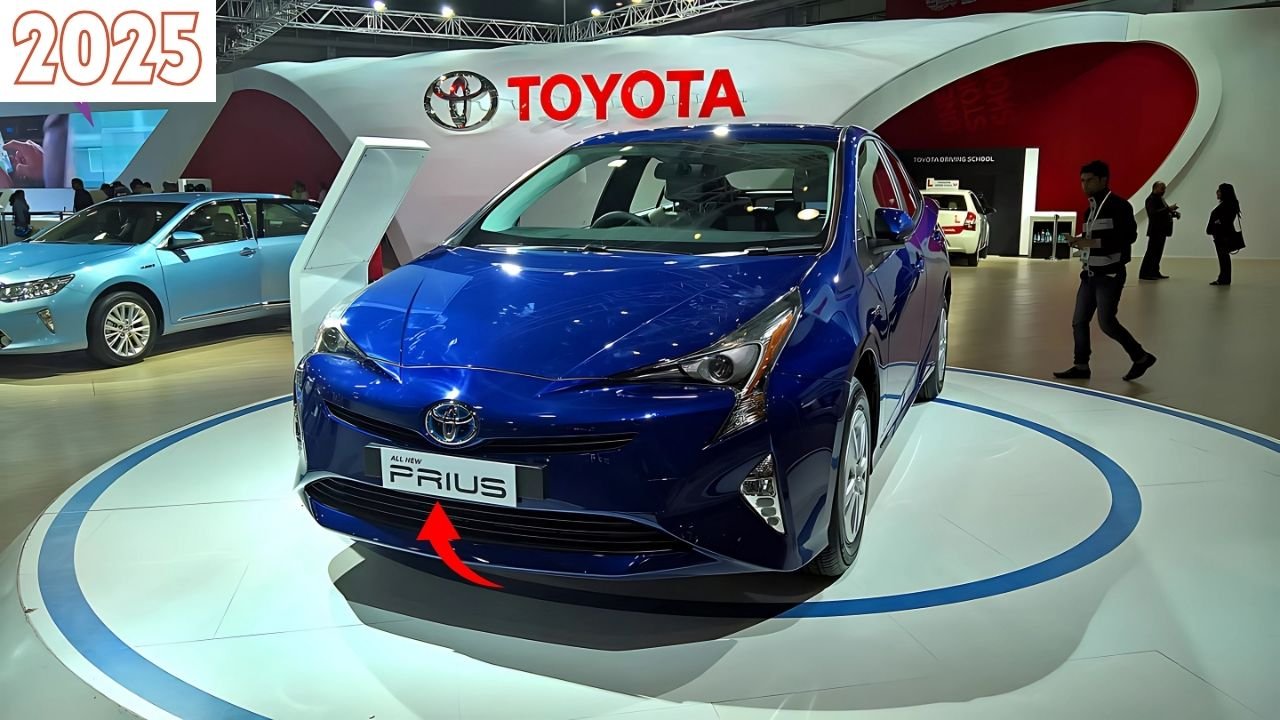Toyota Prius: The Toyota Prius, once the poster child of hybrid technology globally, has become something of a mystery in India. While the world celebrates its fifth-generation avatar, Indian car enthusiasts are left wondering why this pioneering hybrid sedan remains absent from our roads. The story of the Prius in India is one of missed opportunities, pricing challenges, and changing market dynamics.
The Price Reality Check
The Toyota Prius, when it was available in India, commanded a premium price of approximately ₹45.43 lakh (ex-showroom). This pricing positioned it as a luxury hybrid sedan, competing with German premium cars rather than mainstream vehicles. The high price tag was primarily due to its import status, as Toyota never manufactured the Prius locally in India.
The Prius was priced at Rs 45.43 lakh and the fourth-generation model was expected to be priced at Rs 45.09 lakh (ex-showroom Delhi). However, Toyota hasn’t shown any interest in bringing Prius to the Indian market in the foreseeable future.
Why the Prius Failed to Click with Desi Buyers
The Prius’s journey in India tells a fascinating story of how global success doesn’t always translate to local acceptance. Despite being a revolutionary hybrid vehicle, several factors contributed to its lukewarm reception among Indian buyers:
Sky-High Pricing: At ₹45 lakh, the Prius was priced higher than many luxury sedans in India. For Indian buyers who are extremely value-conscious, paying premium prices for fuel efficiency alone didn’t make economic sense. The typical Indian car buyer calculates payback periods meticulously, and the Prius’s math simply didn’t work out.
Lack of Local Manufacturing: Unlike other Toyota models that benefited from local production, the Prius remained an imported vehicle. This not only inflated its price but also created concerns about service accessibility and spare parts availability – crucial factors for Indian buyers who view cars as long-term investments.
Market Timing: The Prius arrived in India when hybrid awareness was minimal. Unlike today’s environmentally conscious urban buyers, the Indian market of the 2010s wasn’t ready to pay a premium for eco-friendly technology. The concept of “green cars” was still in its infancy among Indian consumers.
What Made the Prius Special
Despite its commercial challenges in India, the Prius represented cutting-edge technology that was years ahead of its time. The hybrid sedan offered impressive fuel efficiency figures that would make any Indian buyer’s heart skip a beat – if only it were affordable.
The Prius featured Toyota’s pioneering Hybrid Synergy Drive system, combining a petrol engine with electric motors for optimal fuel efficiency. In international markets, it consistently delivered fuel economy figures that were revolutionary for its time. For Indian families who drive extensively, such efficiency numbers were dream-worthy.
The sedan’s spacious interiors, advanced safety features, and Toyota’s legendary reliability made it an attractive proposition on paper. However, the price barrier proved insurmountable for most Indian buyers who were already stretching their budgets for cars in the ₹10-15 lakh range.
The Current Scenario: Global Success, Indian Absence
While the global automotive world celebrates the new-generation Prius with its bold styling and improved efficiency, India remains on the sidelines. The fifth-generation Prius, launched internationally, features more aggressive styling, better performance, and enhanced fuel economy – addressing many criticisms of earlier generations.
The 2025 Toyota Prius promises future-forward style, efficiency, reliability and advanced tech, but Indian buyers can only admire it from afar. The irony is that today’s Indian market is far more receptive to hybrid technology, with successful launches of the Camry Hybrid and Innova Hycross proving that Indians are willing to pay premiums for hybrid benefits.
What Indian Buyers Are Missing
The absence of the Prius from Indian roads represents a missed opportunity for both Toyota and Indian consumers. Today’s urban Indian buyer is more environmentally conscious, has higher disposable income, and understands the long-term benefits of hybrid technology.
The new-generation Prius offers features that would appeal to modern Indian families: advanced connectivity, comprehensive safety systems, and most importantly, exceptional fuel efficiency. In an era where fuel prices are constantly rising, the Prius’s efficiency could translate to significant savings over ownership periods.
The Pricing Paradox
If Toyota were to launch the current-generation Prius in India, the pricing would likely be even higher than the previous ₹45 lakh mark. With increased import duties, currency fluctuations, and the added cost of new technology, the Prius could easily cross the ₹50 lakh threshold.
This pricing would put it in direct competition with luxury sedans from German manufacturers, making it a tough sell. However, there’s a growing segment of environmentally conscious, affluent Indian buyers who might be willing to pay this premium for the Prius’s unique proposition.
The Road Ahead
Toyota’s decision to skip the Indian market for the Prius seems rooted in practical business considerations. The company has instead focused on hybrid technology in more popular segments like SUVs (Hyryder) and MPVs (Innova Hycross), where the Indian market shows greater acceptance.
However, this strategy means that India misses out on owning the world’s most iconic hybrid vehicle. For Indian automotive enthusiasts and environmental advocates, the Prius remains a symbol of what could have been – a pioneering hybrid that could have kickstarted India’s green mobility revolution much earlier.
Final Thoughts
The Toyota Prius’s story in India is a reminder of how global automotive success doesn’t guarantee local market acceptance. At ₹45 lakh, it was a premium product for a market that wasn’t ready for premium hybrid technology. Today, while the market has evolved, the Prius remains absent, leaving Indian buyers to wonder what might have been.
For those who still dream of owning a Prius in India, the wait continues. Meanwhile, Toyota’s focus on more market-appropriate hybrids like the Camry and Innova Hycross shows that the company has learned from the Prius experience, adapting its hybrid strategy to suit Indian preferences and budgets.
The Prius may be missing from Indian roads, but its legacy lives on in every hybrid vehicle that Toyota launches in our market – a testament to the pioneering spirit of the world’s first mass-produced hybrid car.










